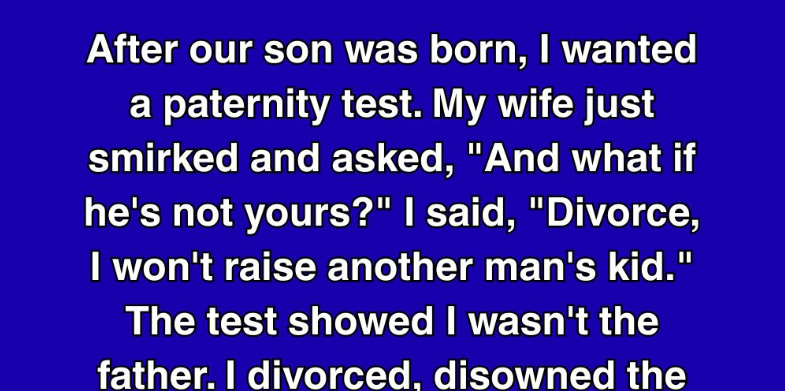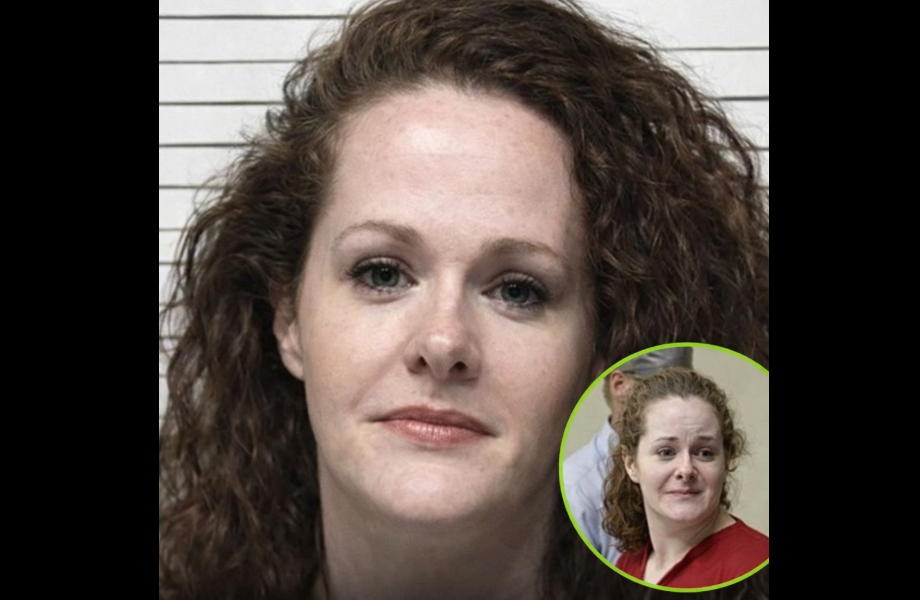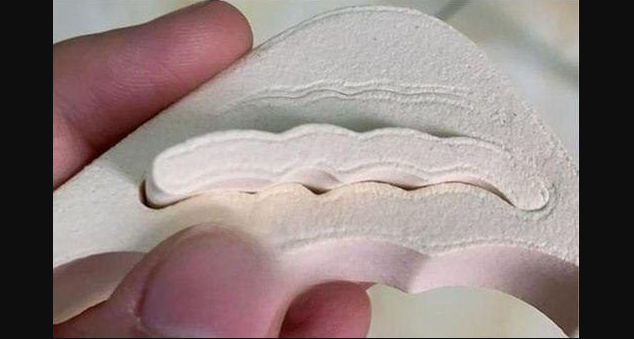After our son’s birth, I insisted on a paternity test. My wife, Zara, gave a faint smile and asked, “What if he’s not yours?” I replied, “Divorce. I won’t raise another man’s child.” The results came back: I wasn’t the father. I filed for divorce and walked away from the child. Three years later, I discovered a shattering truth.
The test was incorrect.
A lab error—uncovered during an internal audit—changed everything. A letter arrived, tucked among forwarded mail from my old address. I nearly tossed it, mistaking it for spam. But the lab’s name caught my eye, stirring unease.
I sat at my kitchen table and tore it open. The letter was clinical, filled with formal language and a brief apology: “Due to a clerical error and sample mislabeling, the paternity results you received in 2022 were inaccurate.”
I read it three times to grasp its meaning.
Then I sat, staring at the page, a heavy chill washing over me.
The truth: he was my son. My boy.
And I had abandoned him.
Three years.
Three birthdays. Three Christmases. His first words, his first steps—all missed.
I left it all behind, as if it held no value. Now I faced the reality that I was the one who disappeared. Not Zara. Not some fictional other man. Me.
The hardest part? Zara never resisted.
When I told her I was divorcing, she didn’t yell or plead. She only said, “If that’s your choice.”
Now I understood why.
She had spoken the truth.
The next day, I stood at her doorstep. Same apartment complex, same number. It felt like stepping into a past that no longer welcomed me.
When she opened the door, her eyes widened. But there was no warmth, no relief—just caution.
“What do you want?” she asked.
“I need to talk. About the test.”
She let me inside, but only to the entryway. From a back room, I heard a child’s laughter. I froze, rooted to the spot.
“Is that… him?” I whispered.
“Yes,” she said. “His name’s Milan now. He turned three in June.”
My throat tightened, burning.
“He’s mine,” I said.
She paused, then replied, “Yes. I know.”
And I broke down.
Right there in her hallway.
She didn’t console me. She stood, arms crossed, waiting.
When I could speak, I poured out everything. The letter. The lab’s mistake. How my cousin’s comment about the child’s skin tone planted doubt that grew into destruction.
She listened. Nothing more.
When I finished, she said, “He thinks his father died in a car crash. I told him that to protect him from feeling unwanted.”
My legs nearly gave out.
A lie that shielded me.
Despite my actions.
“Can I see him?” I asked.
She shook her head. “Not yet.”
I didn’t protest.
I had no right.
I left with shame weighing me down and a lawyer’s number in my phone—one she suggested for custody or visitation. She wouldn’t block me, but she wouldn’t pave the way either.
Nor should she have.
I hired the lawyer. I started therapy. I documented everything—the lab’s error, my misguided choices. But nothing erased the fact that I chose doubt over trust.
Zara sent updates. A photo now and then. A school drawing. Always distant, never personal.
Six months passed before I saw Milan in person.
We met at a park, Zara watching from a bench nearby. He ran around in a yellow jacket, giggling at pigeons and munching raisins. He looked so much like me.
The curve of his ears. The lift of his eyebrows when he smiled.
But to him, I was a stranger.
I introduced myself as “Mr. Noah.”
Not Daddy. Not even Uncle. Just a man in the park.
I accepted it.
That was the price of my choice three years earlier.
But children have a way of sensing things. On our third visit, Milan climbed into my lap and fell asleep. No fear. No questions. Just trust.
That night, I wept harder than ever.
He didn’t know my mistakes. He only knew I felt safe. Present.
Zara observed silently. No approval. No anger. Just steady eyes.
Then one day, she said, “I’m moving to Atlanta.”
I blinked. “Why?”
“My mother’s ill. I need to be there.”
My heart sank.
“That’s across the country.”
“I know. That’s why I’m telling you.”
I understood. Less time. More legal hurdles. Distance.
But how could I ask her to stay after I’d failed so profoundly?
So I said, “Can I come too?”
She raised an eyebrow. “Come?”
“Move there. I’ll find work. I want to be in his life, not a visitor.”
She didn’t agree.
But she didn’t refuse.
So I moved.
I rented a one-bedroom, took a job in warehouse logistics—simple but stable. Every Saturday, I spent with Milan. We explored botanical gardens, kicked a soccer ball, or I held him as he napped.
He started calling me “Noey.” Then, one day, he said, “My daddy’s name is Noey.”
I turned away so he wouldn’t see my tears.
It was slow. Imperfect. But real.
Zara softened, bit by bit.
She invited me for dinner one rainy evening. Then another.
Soon, we were co-parenting almost seamlessly.
One night, picking up toys, she said, “I hated you for a long time. But I hated how much I still cared even more.”
I didn’t know how to respond.
But I said, “I feel the same.”
We didn’t rush back together. We dated cautiously, like strangers meeting anew.
Then came another turn.
Milan fell ill. A cough turned into fevers and fatigue. Tests revealed a rare autoimmune condition—manageable but lifelong, requiring careful medication and monitoring.
My heart broke again.
But this time, I stayed.
Every appointment. Every hospital night. Every follow-up.
Zara leaned on me, crying in my arms. I held her.
Milan changed me.
Pride, status, being right—none of it mattered anymore.
All I wanted was to be there.
One night, as Milan slept in his hospital bed, Zara rested on my shoulder and whispered, “He’s lucky you returned.”
I shook my head. “I’m lucky you allowed it.”
And I meant it.
We remarried two years later. A quiet ceremony by a Georgia lake with Milan and a few friends.
He was our ring bearer. He dropped the pillow. We all laughed.
Now he’s seven. Healthy, curious, full of mischief. Loves science, hates peas.
Some days, the guilt of missing his early years still stings.
But he doesn’t hold it against me.
Children forgive in ways adults struggle to.
He once said, “You came back. That’s what counts.”
And maybe he’s right.
Maybe life offers a chance to fix what’s broken.
If you seize it, fully, with everything you have, sometimes you’re forgiven.
I learned trust is delicate but can be rebuilt.
That pride makes a poor parent, but love can be a great one.
I left when I shouldn’t have.
But I returned.
And I stayed.
If this story resonates, share it. Someone out there might need to hear: it’s never too late to make things right. 💙






